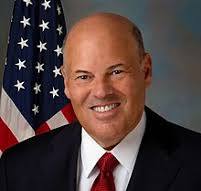Closure of the Cape Girardeau USPS Service Center affects on Local Mail Service

In Cape Girardeau and across the nation, residents and businesses alike have been affected by significant changes in the U.S. Postal Service (USPS) under the leadership of Postmaster General Louis DeJoy. Appointed in 2020, DeJoy has overseen a series of policy changes aimed at restructuring and, ostensibly, making the USPS more financially sustainable. However, these moves have often led to slower mail delivery times, increased delays, and other operational challenges, creating a deep effect felt in communities like Cape Girardeau.
One of DeJoy’s key strategies has been to cut costs and increase efficiency. In 2020, this involved scaling back overtime for postal workers and decommissioning some high-speed mail sorting machines. While these actions aimed to save operational costs, they also resulted in a slower mail process nationwide, as well as increased backlogs. For Cape Girardeau, where mail volume is heavily driven by letters, bills, and packages, these changes have translated into substantial delays, impacting daily life and local businesses.
The recent closure of the Cape Girardeau USPS service center has intensified the challenges already faced by local residents and businesses due to postal policy shifts under DeJoy. This facility once played a crucial role in the area’s mail processing and distribution, providing efficient service for thousands in Cape Girardeau and surrounding communities. Now, without a local processing center, mail must be routed through distant facilities, leading to further delays and increased logistical complexities for the USPS in meeting community needs.
The closure of Cape Girardeau’s service center means that all mail, including packages and essential documents, must be sorted and processed in larger facilities often in most often in St. Louis. This added distance has made two-day delivery timelines unreliable and has even delayed local deliveries that previously took a day or less.
Additionally, the increased workload at distant centers has further strained USPS’s ability to keep pace with demand, leading to mail and packages arriving days or weeks behind schedule. Since DeJoy’s policies focus on efficiency through consolidation, the loss of Cape Girardeau’s service center has further highlighted the drawbacks of centralizing operations, especially for smaller cities where alternative services are limited.
Furthermore, DeJoy implemented a policy to reduce post office hours and limit facility usage, part of his larger effort to consolidate services. For Cape Girardeau’s residents, particularly those in rural areas, this meant fewer available hours for pickups and mail drop-offs, as well as longer waits for mail to arrive from other areas. The limited access has especially affected residents who rely on USPS for time-sensitive deliveries, such as prescription medications and essential documents.
In an effort to stabilize USPS’s finances, DeJoy introduced higher postage rates and additional fees for package handling, citing rising costs and competition with private carriers. For small businesses and e-commerce ventures, the impact has been notable. With higher shipping costs, business owners face an increasingly tough choice: absorbing these costs or pass them on to customers.
Residents who rely on timely bill payments, subscription services, or vital correspondence have been similarly impacted, with many reporting that they must plan for significantly longer mail processing times. This shift has been particularly challenging for those on fixed incomes or tight budgets, as delayed payments can result in late fees and interruptions to services.
Adding to the cost challenges, USPS has also moved some ground deliveries to a “slower but cheaper” delivery tier, extending delivery timelines across the board. Cape Girardeau residents have observed firsthand the frustrating effects, with items once delivered within two to three days now often taking upwards of a week. This slower service has disrupted personal and professional plans alike, as even routine items, arrive unpredictably.
During the COVID-19 pandemic, the USPS became a crucial lifeline for communities like Cape Girardeau, handling increased volumes of mail and packages as people turned to online shopping and home deliveries. However, with DeJoy’s policies focused more on cost-cutting than capacity-building, the USPS has struggled to keep up. For residents, particularly the elderly and those with mobility issues, inconsistent mail delivery has been a major setback, affecting access to vital items like medical supplies, legal documents, and even voter ballots in critical times.
Community advocacy groups and local leaders are increasingly calling for either the reopening of the Cape Girardeau service center or the establishment of additional resources to alleviate the burdens caused by its closure. Engaging USPS leadership and state representatives has become a priority, as local advocates argue that maintaining reliable and timely postal services should be prioritized over cost-cutting measures that negatively impact smaller cities.
In rural areas, where alternatives to USPS are limited, these policy changes have left people without dependable service. Residents report feeling ignored and frustrated, as the effects of these national policies seem disconnected from the daily realities faced by smaller communities dependent on reliable postal service.
Proposals such as introducing more regional processing facilities, hiring additional postal staff, and restoring pre-closure service levels have gained traction. Advocacy for USPS reform is one avenue hopefully being pursued by state representatives and local organizations, urging federal lawmakers to reconsider the Postal Service Reform Act of 2022 in ways that prioritize both efficiency and service quality, restoring Cape Girardeau’s mail service to its former reliability.
Restoring trust in the USPS means grappling with the ongoing effects of Postmaster General DeJoy’s cost-focused policies. Residents and local leaders are hopeful that by emphasizing the critical need for reliable mail service, they can prompt USPS leadership to consider service-based reforms that take into account the unique needs of smaller communities.



























